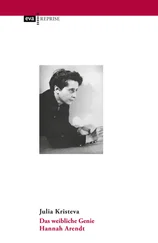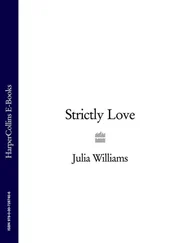All the things of God made me happy; those of the world held me bound.
Teresa of Avila, The Book of Her Life
Some five hundred years stand between us, Teresa; your Catholic culture is foreign to me, and I have difficulty in reading your language, Castilian. But none of this is an obstacle. The two French editions of your works, by Marcelle Auclair and by the Carmelites of Clamart, are available to me, along with a wealth of scholarly works harking back to the Spanish source. 1
Across the centuries and languages and cultures you “speak” to me, because I translate you in my own way. Your moments of illumination, Teresa, my love, your raptures, your hallucinations, your deliriums, your style, your “thinking” that claims not to be an “understanding,” that wants no truck with that — I receive them through my filters, I gather them into meditations of my own, I shelter them in my body, I penetrate them with my own desires. Transformation, journey . Homo viator , wandering in search of sense and sensations in the language of psychoanalysis and fiction. My telescope (a seeing from afar), which is my microscope (magnifying the infinitesimal), brings you to me as an anguished, laughing woman whose harshness is born of generosity, a woman morbid and yet cheerful, a crazed but surprisingly lucid nun, who imposed on all the world the metamorphoses of her amorous body on the pretext of its desire for “Christ’s humanity.”
And you accomplished this at the height of the Golden Age, when Spain was discovering Erasmus, fearing and fighting the Lutherans, and enriching itself by sending fleets to the antipodes. Humbly I take the liberty of addressing you: for I know what store you set by your girls’ “effacement” or “dominion” of self, you, the practitioner of “abandonment” ( dejamiento ), and I will try simply to abandon myself to your pages and let your word be heard.
I am the kind of unbeliever who won’t accept that your body remained uncorrupted by death, as the Spanish king’s confessor thought when, at Alba de Tormes, on January 1, 1586, he found your remains intact — for their preservation was the less than miraculous work of stone and lime. However, I am convinced that your texts can and indeed must be read today and, why not, for centuries to come. And because your body had already been wholly decanted into your writings and monastic foundations — as I shall attempt to show in what follows — and since this apparent exterior, those external objects, those tools of battle are the one and only testimony to your most secret interior, that which sometimes you called “my jewel,” sometimes “divine center,” sometimes “bruised heart”—well, all things considered, I can’t really disagree with those who hold you to be immortal.

Your work seems deathless to me in the here and now, because through your faith, circumscribed by a particular civilization at one historical moment, you underwent an experience and developed a knowledge of human desire (male and female) that have a message for every speaking creature. Christianity made this knowledge and experience possible, no doubt, through the exorbitant hypostasis of loving passion that is its genius. After many a fantasy-infused wandering that encouraged, if not provoked, some grave pathologies, but without straying from the “illuminated” prayer inspired by the alumbrados , you finally clung fast to the plumb line of biblical, evangelical, and theological texts the better to deploy the freedom of your own desire, while elucidating its perils and joys.
Dare I appeal to your good cheer, your restless energy, your sparkling sense of mischief for the license to retrace your journey from the standpoint of my irreconcilable foreignness? Before anything else I have a major infidelity to confess, an impediment that may prove to be a handicap in your eyes: since God is unconscious and the unconscious shadows us, I contend that the Other dwells within, not in the Beyond, and that the transcendence you yearn for is an immanence. Indeed, I find evidence in your own writings to support this hypothesis, for that is where you get to in the end, isn’t it? God dwells inside you; you say so yourself.
Your path through the mansions of the interior castle is not a dead end, as in Kafka; this castle’s walls are permeable, and there is no closed door to bar access to the Master lodged in the innermost chamber of intimacy. You move through a maze of crossings, a stream of spaces, facets, and questions. The Other suffuses the opaque depths of body and soul, generating a real vaporization of the traveler, no less than of her Beloved. Your scandalous appropriation of the divine, the megalomania of your fantasy of being God’s spouse and moreover a polymorphous creature, indissociable from God Himself, whom you ingest and swallow with feigned humility while proclaiming to be “dying of not dying” in Him, when it is none other than He who faints into you in this unchaste embrace, well, is all this strictly Catholic on your part? It’s certainly baroque. It would be more exact to say that you both swoon at once, like two lovers possessed, who can only thus discard their proud identities. And that earthy, ardent Song of Songs that you push to its logical limit, what is it but a way, the only way, to end up…free of God? You don’t pray to God to leave you “free of God,” as Meister Eckhart does. 2Out of love for Christ’s humanity, you receive your freedom from Him continually. Continually, without solution, without end, infinitely free. What if that was the definition of humanism?

Follow me. It was thought that there was another way to emancipate oneself from the supreme Being, the Creator God, supreme in majesty and in power of command: it sufficed to apply the equality principle, making others into our fellows and placing a “point of honor” on charming, serving, and helping them (you dislike that “point of honor” that ensnared you for so long, Teresa, you hate it in fact, you, a saint!). Compassion, in the guise of political solidarity, would eradicate faith for the benefit of short-haul democracy. This juridical humanism, whose great feat was to promise an existential collaboration between the various “social actors,” ran to ground in the impotence of the welfare state, when it did not degenerate into an atheist terror that was, sadly, just as bad as the wars and inquisitions of religion. Today, however, a new humanism seeks to emerge, one that cannot avoid paying attention to your delusions and bedazzlements. For this humanism, interaction with others, all the others — socially marginalized, racially discriminated, politically, sexually, biologically, or psychically persecuted others — is only possible on condition of immersing oneself in a new idea that I shall formulate as follows, translating into my language the ancient experience you took to its height: an irreducible otherness is conceivable, which, being plural, and the blazing pole of singular desires, makes us speak, reflect, enjoy: therefore it exists .
The self-perception of this otherness, as the founding moment of humanity, is what gradually transformed gangs of “great apes” into speaking, thinking societies. All religions celebrate this otherness in the form of a sacred figure or limit (a deity), ruling the desires of the vital flow while remaining separate from it or else by associating with it (as in the Chinese Tao, for example). To discover the frontier where that otherness dawns in me, to nurture and respect it in my dealings with other people will finally allow me, perhaps, to approach these others as beings of desire, rather than objects of need.
Читать дальше













